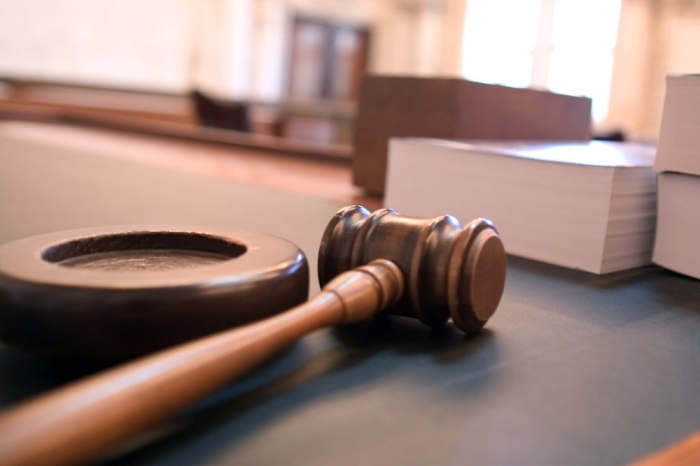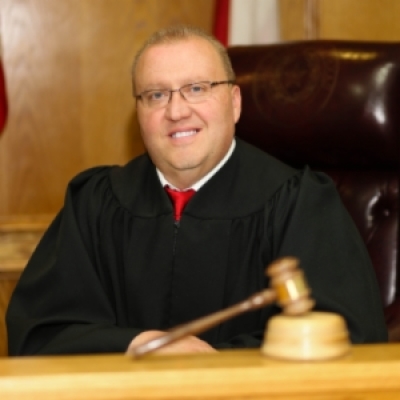Chaplain-led courtroom prayers ruled unconstitutional by federal judge

A judge has issued a decree banning a Christian Texas judge from opening his courtroom proceedings in prayer, providing a legal victory to a prominent secular legal organization.
The Freedom from Religion Foundation, a Wisconsin-based nonprofit established to promote a strict separation of church and state, won a challenge to prohibit Judge Wayne Mack, a justice of the peace from an area north of Houston in Montgomery County, from opening his courtroom with non-mandatory chaplain-led prayer.
U.S. District Judge Kenneth Hoyt ruled on May 21 in favor of FRFF and anonymous local attorney “John Roe,” who has appeared in Mack’s courtroom at least 20 times and witnessed the chaplain-led prayers.
“The Court declares that the defendant’s practice of opening regular court proceedings with religious prayers is unconstitutional,” Hoyt wrote. “Should the defendant violate this Court’s declaratory decree, an injunction will issue."

Hoyt ruled that Mack “violates the Establishment Clause when, before a captured audience of litigants and their counsel, he presents himself as theopneustically inspired, enabling him to advance, through the chaplaincy program, God’s ‘larger purpose.’"
"Such a magnanimous goal flies in the face of historical tradition, and makes a mockery of both religion and law," Hoyt, a Reagan nominee, stated.
Annie Laurie Gaylor, FFRF co-president, said in a statement that the "courtroom is not a church."
“And a judge’s bench is not a pulpit,” Gaylor stressed. “Today’s ruling is a victory for the constitutional rights of all Americans and for equal justice under the law.”
Judge Mack promised to institute "religious values within the office" and open his courtroom with prayer during his 2014 Republican primary campaign for his position as justice of the peace for Montgomery County Precinct 1.
Mack's duties include serving as a coroner for Montgomery County and carrying out death investigations.
He has implemented various faith-based initiatives, such as the Justice Court Chaplaincy Program and prayer breakfasts.
He established the Justice Court Chaplaincy Program, where volunteer chaplains who are primarily Chrisitan would initiate court proceedings with an opening prayer or an invocation and share a short message from the Bible, the complaint states.
Mack introduced the chaplain and stated the name and location of the chaplain’s church. The bailiff would announce the prayers and allow anyone to leave the courtroom without their case being affected though the courtroom doors were locked to those on the outside.
Attendees were allowed to leave if they wanted no part in the ceremony and were only required to be present when the court was in session.
Some citizens feared Mack would judge their cases differently based on whether they stayed for the optional prayer.
“I felt that the Judge was watching for reactions from the courtroom; bowed heads, indifference etc,” an unnamed citizen reported to FFRF.
“I definitely felt that our cases were to be affected by our reactions or lack of. I know I was not alone. Once the Bible reading was over we were then asked to bow our heads to pray. I was very uncomfortable and certainly felt that I was being coerced into following this ritual and that the outcome of my case depended upon my body language. ... Although I did not leave as instructed, ‘if I was offended,’ no one in their right mind would have. ...”
In the lawsuit, FRFF asserted Mack’s chaplain-led prayers are “unconstitutionally coercive” with “purpose and effect” of promoting religion.
FFRF wrote a letter to the defendant in September 2014 stating the opening ceremony that included prayer violated the Establishment Clause of the First Amendment, which prohibits the government from “respecting an establishment of religion.”
In an open letter addressed to “Pastors & People of Faith” in 2014, Mack wrote that his chaplaincy program has come under "national and local attack" by those that "believe that God & Faith has no place in public lives and service.”
“I want to make a statement to show those that feel what we are doing is unacceptable ... that God has a place in all aspects of our lives and public service," he assured.
FFRF originally challenged the courtroom prayers through a lawsuit filed in 2017. The suit was refiled in 2019.
FRFF was granted default judgment on March 25, declaring that Mack’s prayer violated the First Amendment.
Mack is represented by the First Liberty Institute, a legal nonprofit that advocates for religious freedom rights.
“Judge Mack is following a long tradition of opening courts, including the U.S. Supreme Court, with a ceremonial invocation,” First Liberty Institute Deputy General Counsel Justin Butterfield said in a statement. “We disagree with the court’s decision, and we look forward to appealing this decision to the Fifth Circuit.”
Liberty Institute maintains that Mack allows "multi-faith, volunteer chaplains to open his courtroom ceremonies." The program has included chaplains from Christian, Sunni Muslim, Buddhist and Hindu traditions. Mack is not even in the courtroom when the invocations are given, the legal group argues.
Emily Wood is a reporter for The Christian Post. She can be reached at: emily.wood@christianpost.com




























